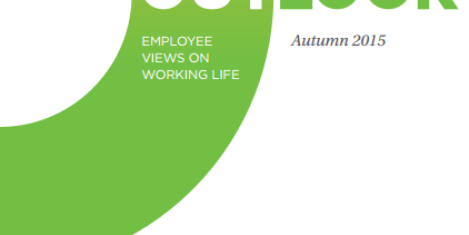December 3, 2015
Dog-friendly offices more appealing to Millennials than play rooms 0
 Only a third of US workers believe that promotion offers the potential to advance their career with more than a third of all workers and 44 percent of Millennials preferring to jump ship if the right opportunity arises. Addison Group’s second annual generational workplace survey found that regardless of generation, healthcare benefits was most important benefit (70 percent), followed by a high salary (59 percent). However, Millennials would choose one company over another that paid a higher salary if free meals, beverages and snacks (40 percent) and tuition reimbursement (36 percent) were provided. Millennials also rank a dog-friendly office (14 percent) higher than a napping room, concierge services and a play room with ping pong, billiards and video games. They also value the social aspect of the workplace highly, with nearly twice as many (15 percent) marking work-sponsored happy hours as important compared to Baby Boomers (8 percent).
Only a third of US workers believe that promotion offers the potential to advance their career with more than a third of all workers and 44 percent of Millennials preferring to jump ship if the right opportunity arises. Addison Group’s second annual generational workplace survey found that regardless of generation, healthcare benefits was most important benefit (70 percent), followed by a high salary (59 percent). However, Millennials would choose one company over another that paid a higher salary if free meals, beverages and snacks (40 percent) and tuition reimbursement (36 percent) were provided. Millennials also rank a dog-friendly office (14 percent) higher than a napping room, concierge services and a play room with ping pong, billiards and video games. They also value the social aspect of the workplace highly, with nearly twice as many (15 percent) marking work-sponsored happy hours as important compared to Baby Boomers (8 percent).


































September 18, 2015
Majority of workers go into the workplace when they should be off sick 0
by Sara Bean • Comment, News, Wellbeing, Workplace
Debates around presenteeism tend to revolve around staff checking their emails while on holiday, but another potentially more destructive behaviour is that of the worker who reckons they’re so indispensable they insist on coming into the workplace when they’re ill. In a recent survey, 89 percent of workers said they had gone into work when they were not well, which is why it is hardly surprising that almost three quarters (71 percent) of employees have reported catching an illness from a sick colleague. According to the research by Canada Life, almost a third (32 percent) said their workload was too great for them to take time off for illness, and 80 percent would not take time off for stress-related illnesses. Employees were also worried about being perceived as lazy (13 percent), inconsiderate (10 percent) and weak (10 percent) if they took time off for a short-term illness.
(more…)